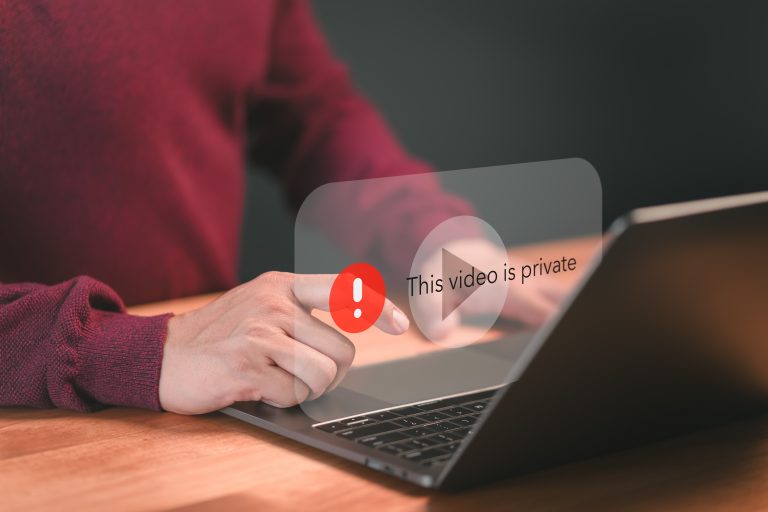Navigating Privacy Settings on Social Media Platforms
December 12, 2023Social media has become a ubiquitous aspect of daily life, making the management of privacy settings increasingly vital. This article…

Whether you like it or not, your personal information is all over the Internet. That’s why some people venture to write a letter to remove personal information from Internet sites.
Can this be done?
In the following article, we’ll answer this question. We’ll also discuss other options related to improving your online reputation.
If you use the Internet, much of your personal data is probably public. This may include your:
Some personal information becoming public might not bother certain people. Some don’t care if their name, address, and educational history are recorded online.
On the other hand, things get sticky when negative personal information is available online.
For example, let’s say you are self-employed. You run your own business. Now let’s say that someone wrote one or several negative reviews about your business.
In the long run, this can cost you. When people search your business online, they may see the negative reviews first. This can impact their opinion of your company.
The same goes for people who may have a criminal history. It doesn’t matter whether you were actually charged with a crime or not. This information can be spread far and wide.
In these cases, it’s important to take action. You may consider writing a letter to remove personal information from Internet sites. Or, you can contact a company that will do the work for you.
This depends. If you use social media, they definitely have your information. This includes sites like:
People search sites will also have your information. These are basically “aggregators.”
Aggregator sites pull all their data from other sources. Then, they put it in one place. Online searchers can find free or for-purchase information on these websites.
If you are in business, review sites will also have information related to your industry and occupation.
Companies can obtain your personal information in all sorts of different ways. It usually starts when you give your personal information to a single organization.
This might be a credit card company, your place of employment, or a social media site. It might even be an online store.
Some or all of the above entities can sell your personal information to other companies. They may sell the data to marketing companies. Marketing companies want your personal information because they can use it to sell more to you.
Let’s say you post something about a recent change of address on social media. That platform can then sell the fact that you’ve moved to a marketing company. In turn, the marketing company can use this information to sell you things like:
Other sources can post your information online as well. These include:
Finally, hackers obtain, use, and sell personal information too. These tips can help you avoid this and improve your online privacy.
It should be easy to remove personal information from the Internet. But this isn’t always the case.
Still, there are a few things you can try to:
None of these options are easy, however. Here’s why:
Companies and websites sell people’s personal information all the time. If one site has it, many others probably do too. It’s a huge industry.
This means it would take you a very long time to track down every website. You would have to keep updating your efforts as well.
Certain information has to be taken down by law. Let’s say you were convicted of a crime. If the conviction was expunged, most states require this information to be removed from the Internet.
On the other hand, some websites don’t legally have to remove the information. In fact, asking them to can cause more of a stir. It’s sometimes better to leave the information and try a different tactic.
Even if you get a few websites to take down your information, it will likely come back. That’s because of search engines like Google.
Google uses the most recent, appropriate links when creating search results. So, when someone searches you, sometimes only the negative stuff comes up. There’s simply nothing to replace it.
Google cannot make a website remove information. It’s only a search engine. It shows the most relevant websites related to keyword searches.
This means that you have to go straight to the source to remove something. Search engines won’t help you.
The only time that a search engine may help is if content has been deleted from a website, but it’s still on the search engine. In this case, contact the search engine to have the link removed.
Sometimes, a letter can help. But this isn’t always the case. For starters, it depends on what information you want removed and why.
Certain legal information has to be removed by law. For example, let’s say you were charged with a crime, but the case was dismissed. In this situation, government websites have to remove that info.
Other websites may not readily remove the info. If this happens, a letter to remove personal information from Internet sites could work.
You might use such a letter with a news website, for instance. If they won’t take the article down entirely, they may at least remove the search tags. This makes it harder to find.
With other information, a simple letter probably won’t be effective. Your letter would basically have to appeal to the goodwill of the company. This isn’t something you can count on.
If you’d like to try a letter to remove personal information from Internet sites, be sure to include the following:
For most people, the best way to remove personal information is to hire a company that specializes in this work. RPI can quickly and effectively eliminate information that you don’t want online.
Our technologies make scanning the Internet for information about you easy. We also know exactly who to contact to get information taken down.
With many websites, it’s a cascade effect. Once they know they have to take your information down, they alert other websites where they’ve sold your info. Those sites then have to take down your data as well.
Yes. Most people who want to remove online information want to improve their reputation. Doing so can:
The key here is that reputation improvement is not always about removing negative information. Instead, it’s usually about pushing the negative information down.
To do this, experienced companies like RPI create new content for you. This content is positive in nature.
RPI knows exactly how to create it and where to place it online. You get to dictate what positive information is used.
It has to do with SEO or search engine optimization. For you as an individual, the keyword that people would use to search you would be your name. In business, it’s your business’s name.
When they search your name or business’s name, you want only positive information to come up. The first websites in your search engine results should be sites like:
A reputation management company can make this happen. New, positive content is created and posted. Any negative websites or negative reviews are pushed to the second, third, fourth, etc. pages of Google.
In effect, this is the best way to make your negative online reputation disappear.
Your reputation follows you wherever you go. Nowhere is this truer than online.
RPI has over seven years of experience helping people remove personal information from the Internet. We can suppress the negative reviews and articles that are making life difficult.
Pushing down negative content is freeing. Our removal experts will work diligently to remove damaging personal information. We’ll replace it with positive data about you, your business, and your prospects.
You can’t always write a letter to remove your personal information from internet sites. But do you have options for private info removal.
Ready to get started? Contact us online or call us today at 844-445-6096 to get your free profile analysis now!

Social media has become a ubiquitous aspect of daily life, making the management of privacy settings increasingly vital. This article…

Facebook, with its 2.85 billion users, is a major player in the digital world. Despite its popularity, concerns about data…

The online reputation of a small business is a critical factor that can greatly influence its success. With 87% of…